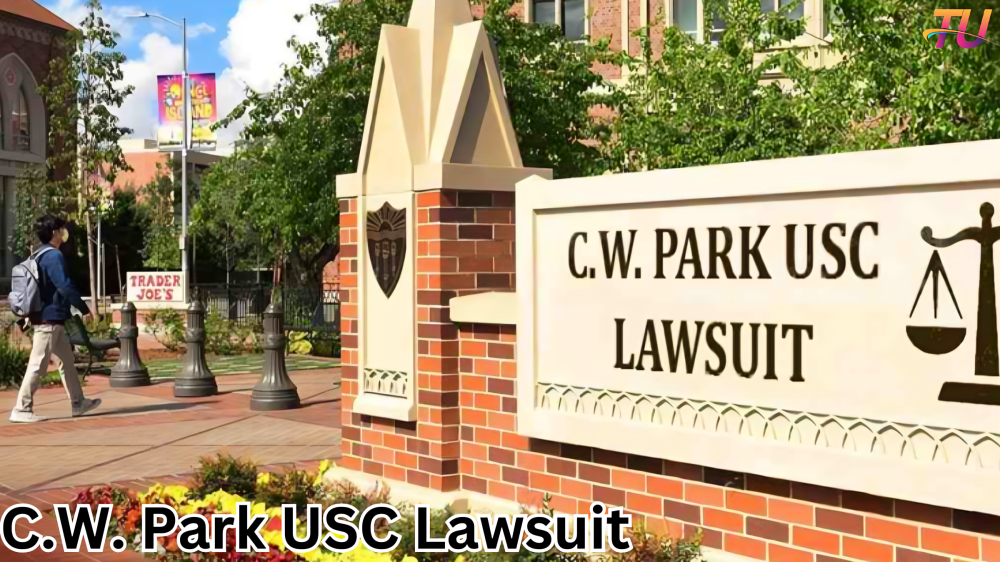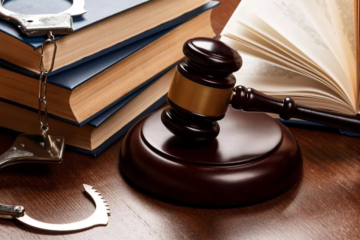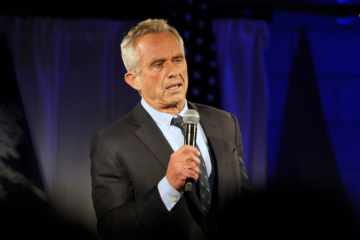C.W. Park USC Lawsuit: An In-Depth Examination

The C.W. Park lawsuit against the University of Southern California (USC) has become a focal point for discussions about discrimination, student rights, and institutional responsibility. This article aims to provide a comprehensive overview of the lawsuit, including its background, the key allegations, the legal proceedings, and the broader implications for USC and the academic landscape.
Background of the Case
The Parties Involved
C.W. Park, a former student of USC, has brought forth allegations that have significant implications for the university’s practices and policies. The case centers around claims of discrimination and breach of contract, raising questions about how educational institutions uphold their commitments to students.
USC, established in 1880, is one of the oldest private research universities in California. It boasts a diverse student body and is known for its emphasis on academic excellence and community engagement. However, like many universities, it faces challenges related to student treatment and campus culture.
Context of the Allegations
In recent years, universities across the United States have faced increasing scrutiny over their handling of discrimination claims. The rise of movements advocating for social justice and equality has heightened awareness of issues surrounding race, gender, and sexual orientation on college campuses. C.W. Park’s allegations fit into this broader context, highlighting the challenges that institutions face in fostering inclusive environments.
Key Allegations
Discrimination Claims
The primary allegations in the C.W. Park lawsuit revolve around claims of discrimination based on race and academic background. Park asserts that he was subjected to a hostile learning environment, which adversely affected his academic performance and emotional well-being.
- Hostile Environment: Park describes experiences of discrimination that created a hostile environment. He claims that he faced verbal harassment and was marginalized within academic settings, affecting his ability to thrive as a student.
- Impact on Academic Performance: Park’s allegations extend to the claim that the discriminatory practices hindered his academic success. He contends that the emotional toll of these experiences led to decreased performance in his studies, further perpetuating his distress.
Breach of Contract
In addition to discrimination claims, Park alleges that USC breached its contractual obligations to students. Educational institutions typically outline their commitments to provide a safe and supportive environment through various policies and student handbooks. Park’s claims suggest that USC failed to uphold these commitments.
- Failure to Follow Policies: Park argues that the university did not adhere to its own policies regarding student treatment and support. He claims that instances of discrimination were not adequately addressed, violating the trust that students place in the institution.
- Expectation of Support: Students at universities often expect a certain level of support from their institutions, particularly in instances of harassment or discrimination. Park’s claims suggest that USC did not fulfill this expectation, leading to significant emotional distress.
Negligence
Park’s legal team also argues that USC was negligent in its responsibilities to protect students. The lawsuit asserts that the university failed to take appropriate actions in response to the alleged discriminatory practices.
- Duty of Care: Universities have a legal and ethical obligation to provide a safe environment for their students. Park contends that USC neglected this duty by not adequately responding to reports of harassment and discrimination.
- Consequences of Negligence: The alleged negligence resulted in severe emotional and psychological consequences for Park. His claims emphasize the need for universities to take allegations of discrimination seriously and implement effective measures to protect their students.
Legal Proceedings
Filing of the Lawsuit
The C.W. Park lawsuit was filed in state court, marking the beginning of a complex legal process. The initial filing included detailed allegations, seeking redress for the harms he experienced while attending USC.
- Legal Representation: Park’s legal team is composed of attorneys experienced in handling discrimination and breach of contract cases. They aim to gather evidence that supports Park’s claims and demonstrate the university’s failure to protect him.
- USC’s Response: USC has denied the allegations and has moved to dismiss the case, asserting that it acted appropriately in accordance with its policies. The university maintains its commitment to fostering an inclusive environment and denies any wrongdoing in Park’s case.
Pre-Trial Motions
As the case progresses, both parties engage in a series of pre-trial motions. These motions are crucial for shaping the course of the litigation and determining what evidence will be admissible in court.
- Motion to Dismiss: USC’s legal team filed a motion to dismiss the lawsuit, arguing that Park’s claims lack merit. This motion seeks to eliminate the case before it goes to trial, emphasizing that the university acted within the bounds of its policies.
- Discovery Phase: Following the initial motions, the discovery phase commences, allowing both parties to gather evidence and information relevant to the case. This phase may involve depositions, document requests, and the sharing of witness statements.
Implications of the Lawsuit
Campus Culture and Policies
The outcome of the C.W. Park lawsuit could significantly impact USC’s campus culture and policies regarding student treatment. A ruling in favor of Park may compel the university to reevaluate its practices and ensure that it is effectively addressing issues of discrimination.
- Revising Policies: Should the court rule against USC, the university may be required to revise its policies related to discrimination and student support. This could lead to more robust measures for addressing harassment and creating a safer environment for all students.
- Training and Education: The lawsuit may also prompt USC to implement additional training programs for faculty and staff regarding diversity, equity, and inclusion. Ensuring that all members of the university community understand their roles in creating a supportive environment is essential for fostering positive change.
Legal Precedents
The C.W. Park lawsuit could set legal precedents for future cases involving discrimination and breach of contract within educational institutions.
- Empowering Students: A favorable ruling for Park may encourage other students who have faced discrimination to pursue legal action against their universities. This could lead to an increase in lawsuits aimed at holding institutions accountable for their actions.
- Influencing Other Institutions: The case may serve as a wake-up call for other universities to evaluate their own practices. Institutions may be more inclined to proactively address discrimination claims and enhance their support systems for students to avoid potential litigation.
Broader Context of Discrimination in Education
The Rise of Social Justice Movements
The C.W. Park lawsuit occurs against the backdrop of a national reckoning with issues of race and inequality. Social justice movements have brought attention to the experiences of marginalized communities, particularly within educational institutions.
- Student Activism: Many students are becoming increasingly vocal about their experiences of discrimination and harassment on campus. This activism has pressured universities to confront systemic issues and prioritize diversity and inclusion.
- Increased Awareness: The heightened awareness surrounding discrimination has led to more students feeling empowered to speak out against injustices. The C.W. Park lawsuit is part of this larger narrative, illustrating the challenges that students face in advocating for their rights.
Institutional Accountability
As universities navigate the complexities of discrimination claims, there is a growing expectation for accountability.
- Transparency: Students and advocates are calling for greater transparency in how universities handle allegations of discrimination. Institutions are being urged to communicate their processes clearly and ensure that students understand their rights and available support systems.
- Creating Safe Spaces: The lawsuit highlights the need for universities to create safe spaces for students to report discrimination without fear of retaliation. This includes implementing anonymous reporting mechanisms and providing resources for emotional support.
FAQs
1. What are the primary allegations in the C.W. Park lawsuit?
The primary allegations include discrimination based on race, breach of contract regarding university policies, and negligence in providing a safe learning environment.
2. How has USC responded to the allegations?
USC has denied the allegations, asserting its commitment to diversity and inclusion while maintaining that it provided adequate support and resources to Park during his time as a student.
3. What could be the potential outcomes of the lawsuit?
Possible outcomes include a ruling in favor of Park, leading to changes in university policies, or a dismissal of the case, allowing USC to maintain its current practices.
4. How might this lawsuit impact other universities?
The lawsuit could set legal precedents and prompt other universities to review and potentially revise their policies on discrimination and student support to avoid similar legal challenges.
5. What is the current status of the lawsuit?
As of now, the lawsuit is in the legal proceedings stage, with motions to dismiss being filed by USC and the plaintiff preparing to present evidence supporting his claims.
Conclusion
The C.W. Park USC lawsuit represents a significant moment in the ongoing discourse surrounding discrimination and student rights within higher education. As the case unfolds, it serves as a reminder of the challenges that students face and the importance of holding institutions accountable for their actions. The implications of this lawsuit extend beyond USC, potentially influencing how universities across the nation address issues of discrimination and support their students. In an era where social justice movements are reshaping the landscape of education, the outcome of this case could have lasting effects on campus culture and institutional policies for years to come.



0 Comments